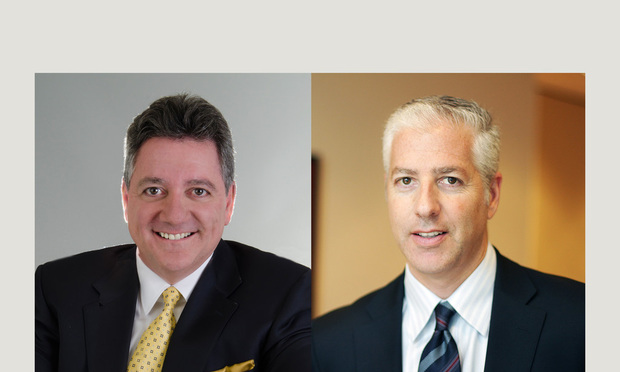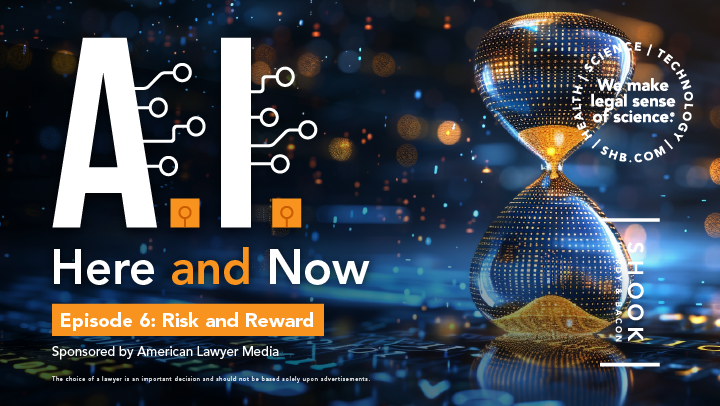'No Commute. No Traffic': Pluses, Minuses as Lawyers Log on Remotely
Stuck at home, lawyers are adjusting to the new normal of having to work remotely, as courts and firms close their doors to help slow the spreading of the coronavirus.
March 17, 2020 at 03:02 PM
4 minute read
 Jeffrey C. Schneider,left, of founding partner with Levine Kellogg Lehman Schneider + Grossman and Paul A. Shelowitz, right, of Stroock & Stroock & Lavan LLP.
Jeffrey C. Schneider,left, of founding partner with Levine Kellogg Lehman Schneider + Grossman and Paul A. Shelowitz, right, of Stroock & Stroock & Lavan LLP.
As more and more law firms in South Florida transition to remote work amid the coronavirus outbreak, attorneys report advantages, challenges and setbacks as they embrace the new normal.
One of the benefits for Paul A. Shelowitz, a partner at Stroock & Stroock & Lavan, is having two additional hours in his work day.
"No commute," Shelowitz said. "No traffic."
Shelowitz is still in court — telephonically. On Monday, he was in a multi-hour telephonic evidentiary hearing before Eleventh Circuit Judge Spencer Eig, who he said is attempting to avoid a huge backlog.
"There's a judge that is trying to move cases along," Shelowitz said. "He gave us filing deadlines, proposed orders in 10 days."
Still, Shelowitz is worried the effects of the coronavirus are going to set litigation back several months. A real challenge for him is the schedule disruption, amid cancellations of hearings, depositions and trials.
'Advocacy suffers'
Jacqueline Calderín, managing partner at Agentis, suggested attorneys miss nuances during telephonic hearings, especially if they don't know the judges presiding over those hearings.
"I know the bankruptcy judges. They know me. You go in there knowing what you are going to encounter for the most part," Calderin said. "When you are practicing in state court, like my litigation partners, there are so many judges and there are thousands of lawyers, that I think you lose that personal connection, like body language, inflection. Your advocacy suffers."
The real hindrance, Calderin said, are evidentiary hearings because the judge needs to examine the demeanor of the witness.
The coronavirus has led law firms and courts to either encourage or instruct their employees to work from home. The move is to slow the rapidly spreading coronavirus outbreak.
As of Tuesday morning, officials reported more than 170 confirmed coronavirus cases among Florida residents, according to the Florida Department of Health—an increase of about 30 confirmed cases of the coronavirus affecting Florida residents within the last 12 hours.
The health concerns have prompted courts across the country and in South Florida to close and embrace telephonic hearings. For instance, the Miami-Dade County Courthouse, where Judge Eig sits, has shut down facilities until March 27, with employees working from home.
The United States Bankruptcy Court for the Southern District of Florida is using technology like Court Solutions and CourtCall. Enrolling with these conference telephone systems is required to participate in hearings before the Bankruptcy Court. Otherwise, attorneys must file a motion to submit the case on their papers.
New software licenses
Stuck at home, Shelowitz is not having any problems accessing those types of technologies as well as the system portal for his firm.
Stroock & Stroock & Lavan has undergone testing in preparation for the transition, including conducting a comprehensive stress test last week, in which lawyers from around the country simultaneously logged into the system.
Jeffrey C. Schneider, founding partner at Levine Kellogg Lehman Schneider + Grossman, said the attorneys are now logging on to the same systems, just remotely. Initially, the firm did not have as many licenses for remote use as it needed to accommodate all its employees.
"We never encountered something like this before," Schneider said.
Usually, around 20 percent of the 15 lawyers at LKLSG operate remotely from home or another location. But now, all the firm's employees are working remotely.
"This has been something that we have been contemplating for the last week," Schneider said, "so we made sure to secure those extra licenses."
NOT FOR REPRINT
© 2025 ALM Global, LLC, All Rights Reserved. Request academic re-use from www.copyright.com. All other uses, submit a request to [email protected]. For more information visit Asset & Logo Licensing.
You Might Like
View All
Climate Disputes, International Arbitration, and State Court Limitations for Global Issues
![Judicial Face-Off: Navigating the Ethical and Efficient Use of AI in Legal Practice [CLE Pending] Judicial Face-Off: Navigating the Ethical and Efficient Use of AI in Legal Practice [CLE Pending]](https://images.law.com/cdn-cgi/image/format=auto,fit=contain/https://images.law.com/contrib/content/uploads/sites/276/2024/10/Image-request_767x633pxl.jpg)
Judicial Face-Off: Navigating the Ethical and Efficient Use of AI in Legal Practice [CLE Pending]
4 minute readTrending Stories
- 1Settlement Allows Spouses of U.S. Citizens to Reopen Removal Proceedings
- 2CFPB Resolves Flurry of Enforcement Actions in Biden's Final Week
- 3Judge Orders SoCal Edison to Preserve Evidence Relating to Los Angeles Wildfires
- 4Legal Community Luminaries Honored at New York State Bar Association’s Annual Meeting
- 5The Week in Data Jan. 21: A Look at Legal Industry Trends by the Numbers
Who Got The Work
J. Brugh Lower of Gibbons has entered an appearance for industrial equipment supplier Devco Corporation in a pending trademark infringement lawsuit. The suit, accusing the defendant of selling knock-off Graco products, was filed Dec. 18 in New Jersey District Court by Rivkin Radler on behalf of Graco Inc. and Graco Minnesota. The case, assigned to U.S. District Judge Zahid N. Quraishi, is 3:24-cv-11294, Graco Inc. et al v. Devco Corporation.
Who Got The Work
Rebecca Maller-Stein and Kent A. Yalowitz of Arnold & Porter Kaye Scholer have entered their appearances for Hanaco Venture Capital and its executives, Lior Prosor and David Frankel, in a pending securities lawsuit. The action, filed on Dec. 24 in New York Southern District Court by Zell, Aron & Co. on behalf of Goldeneye Advisors, accuses the defendants of negligently and fraudulently managing the plaintiff's $1 million investment. The case, assigned to U.S. District Judge Vernon S. Broderick, is 1:24-cv-09918, Goldeneye Advisors, LLC v. Hanaco Venture Capital, Ltd. et al.
Who Got The Work
Attorneys from A&O Shearman has stepped in as defense counsel for Toronto-Dominion Bank and other defendants in a pending securities class action. The suit, filed Dec. 11 in New York Southern District Court by Bleichmar Fonti & Auld, accuses the defendants of concealing the bank's 'pervasive' deficiencies in regards to its compliance with the Bank Secrecy Act and the quality of its anti-money laundering controls. The case, assigned to U.S. District Judge Arun Subramanian, is 1:24-cv-09445, Gonzalez v. The Toronto-Dominion Bank et al.
Who Got The Work
Crown Castle International, a Pennsylvania company providing shared communications infrastructure, has turned to Luke D. Wolf of Gordon Rees Scully Mansukhani to fend off a pending breach-of-contract lawsuit. The court action, filed Nov. 25 in Michigan Eastern District Court by Hooper Hathaway PC on behalf of The Town Residences LLC, accuses Crown Castle of failing to transfer approximately $30,000 in utility payments from T-Mobile in breach of a roof-top lease and assignment agreement. The case, assigned to U.S. District Judge Susan K. Declercq, is 2:24-cv-13131, The Town Residences LLC v. T-Mobile US, Inc. et al.
Who Got The Work
Wilfred P. Coronato and Daniel M. Schwartz of McCarter & English have stepped in as defense counsel to Electrolux Home Products Inc. in a pending product liability lawsuit. The court action, filed Nov. 26 in New York Eastern District Court by Poulos Lopiccolo PC and Nagel Rice LLP on behalf of David Stern, alleges that the defendant's refrigerators’ drawers and shelving repeatedly break and fall apart within months after purchase. The case, assigned to U.S. District Judge Joan M. Azrack, is 2:24-cv-08204, Stern v. Electrolux Home Products, Inc.
Featured Firms
Law Offices of Gary Martin Hays & Associates, P.C.
(470) 294-1674
Law Offices of Mark E. Salomone
(857) 444-6468
Smith & Hassler
(713) 739-1250








